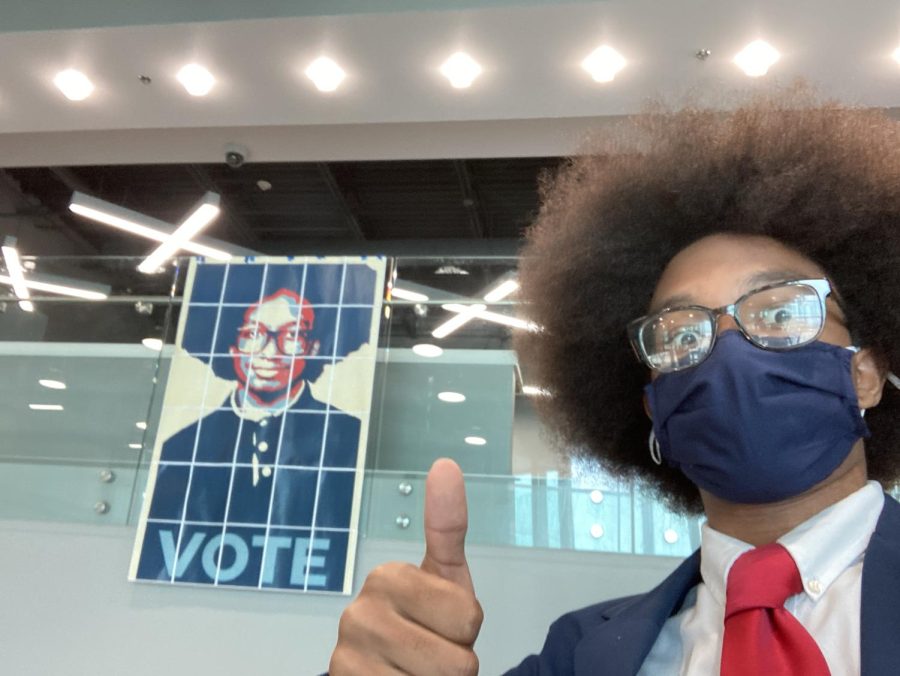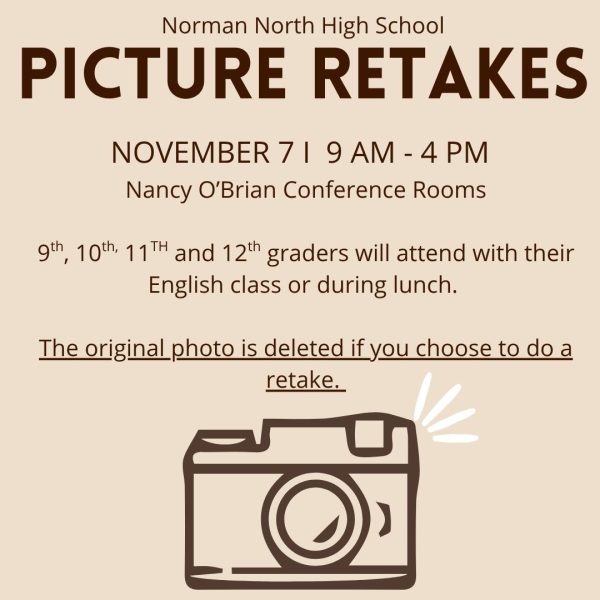The President’s Guide to Class Officership (Part One)
Thomas Richardson, senior holding a thumbs up in front of one of this campaign posters, during last year’s election.
Information from editorials do not necessarily reflect the attitudes and beliefs of The Howl.
Do you want to get more involved at North, but think DEN is too much of a commitment? Do you want to help plan Prom your junior year? Or do you want to be one of the first people to walk at Graduation? If you answered yes to any of those, becoming a Class Officer may be for you.
Now, people become CO’s for many reasons, not just the ones I listed above. Some do it to put on their college applications, some do it because their friends are officers, and some do it for the heck of it. The reason doesn’t really matter, it’s more about the process and responsibilities that come afterward. The Sophmore Class Officers don’t do much besides taking a group photo for the yearbook. The Junior and Senior CO’s, though actually do stuff. The Junior CO’s are in charge of planning Prom, and if they are re-elected to be Senior CO’s, they will usher at Graduation as Senior CO-elects. The Senior CO’s are in charge of many senior-related stuff, such as Senior Sunrise/Sunset, Class Jerseys, and the Senior Picnic. The Senior Class President also has to give a speech at Graduation.

There are five positions in the Class Office: President, Vice-President, Treasurer, Secretary, and Publicity. The President runs the meetings. The Vice-President runs meetings in the absence of the President. The Treasurer deals with money (such as during Prom Sales and collecting Senior Dues). The Secretary takes notes when needed. And last but not least the Publicity Officer runs and maintains the class Instagram.
In order to become a Class Officer, you have to be elected to that position. Elections usually take place in either late April or early May. Before you start campaigning, there are a few things that you’re going to want to do.
First, you’re going to want to ask around and try to scope out the potential competition. In most cases, the current class officers know, so you may want to start there. Also, a good thing to note is most times if someone is currently in office, (especially president or vice-president) they’re going to run for re-election, so it’s probably not a good idea to run against them, as they can easily pull the “I have more experience” card to swing voters their way.
After you’ve done your research and figured out which position you want to run for, there is a form that you have to fill out to register. The form also has the rules for campaigning, which are simple rules, for example: You can only use a standard sheet of paper for posters (8.5×11), you have to use painters tape to hang up said posters (to not damage the walls), and you can’t slander your opponent.
Now comes the fun part, Campaigning, which I’ll talk about in the next part.







